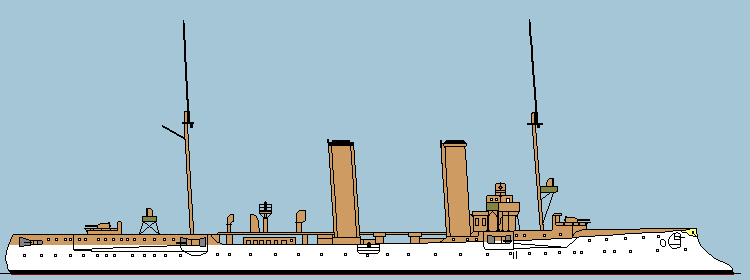The small cruisers of the Gazelle
class were the first real small cruisers build by the German Hochseeflotte. They were the beginning of a ship evolution process which found its climax with the first post WW1 cruiser, the Emden
. With a total of 10 ships, this class was also the largest class of small cruisers build in Germany. The ships were build between 1897 and 1904 and in those seven years, ship constriction was in a steady development, the single ships differed from each other in size and
appearance.
The Gazelle
class introduced the 10,5 cm gun as the standard gun for small cruisers, a gun size that was still installed German ships when British cruisers increased the size of the main cruiser artillery already.
Being obsolete at the outbreak of the war, they were mainly used for coastal defence during the war. A few ships were lost, but the surviving ships were used for various duties after the war. Because of their age, none of them was part of the delivered fleet at Scapa Flow. Two of the ships even were converted into floating AA batteries during WW2 their fate is described on the Floating AA Batteries page.
Nymphe
was used for coastal defence until 1917 when it was converted in to a floating barrack, After service in the Reichsmarine between 1924 and 1929 it was scrapped in 1932.
|


